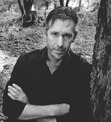On Old Tools and New Tricks
It’s been a busy year, finishing and releasing a new novel, completing a sizable work project for one client and a steady stream of consultancy from others. So it was a quiet delight at the weekend to get into my workshop under the house with the excuse of ‘tidying up’.
There is something very comforting about entering the space where I keep my tools. I don’t need a particular job to hand to feel like I’m spending time in a worthwhile fashion – just rifling through the odd toolbox, pulling some tools out, sorting them, checking the edges on plane blades and chisel ends and drill bits is enough. I don’t know how people without workshops cope. Maybe a musician gets the same feelings of ease when she enters her music room, and an accomplished swimmer also experiences a sense of great comfort when he walks along the concourse toward the diving blocks he’s sprung from for years. Even though I don't get much time at it, I love having a workbench. And sorting my tools at the weekend was an even more important a job, because my collection was added to significantly some months ago.
My father always said that one day,his tools would be mine. I always felt that ‘one day’ would never come, but it did early this year. Now, with a large tool box that was always Dad’s now sitting in my workshop, the proof he’s gone is inescapable. But it’s not sad. There are tools I recognise from when I used to watch him use from when I was a toddler, working weekends building a new trellis or enclosing a room or opening up a verandah.
The electric tools I remember from my childhood have all failed and been dumped over the years, but the hand tools remain: the braces and bits, the bottle jack, the keyhole saw, the saw tooth setter, the raggling chisels, the shellite burner. Should the electricity go off forever, I have tools sufficient to build an entire house; yes, it would take a lot longer (and with me behind them, a wonky house it would be) but it could be done.
Dad saw the passing of the horse-and-sulky and the explosive growth of the motorcar, the progression of aeroplanes from flimsy biplanes to supersonic jets, the immediate after effects of the First World War and, firsthand, the effects of the Second. He grew up listening to a wireless, was nearly forty when television arrived in our country, and was near retirement when computers took off in the workplace. He lived without ever owning a computer. True, he had trouble setting the date on his digital watch, but he could calculate accurate timber lengths to the sixteenth of an inch in his head. I work to base ten and need a calculator.
A world without computers seems inconceivable, now, yet it worked and worked well. My household has two Macbooks, two iPhones and an iPad … and yet I always still like to leave the house with a handkerchief and enough silver in my pocket to make a payphone call. Silly, I know, and showing a remarkable distrust of both tissues and mobile phone networks. This caution about radiowaves (bolstered by many years fighting lousy of mobile phone reception and inconsistent home WiFi) has extended into e-readers. I own an iPad but still don't use it for reading. I have considered buying a Kindle, but haven't yet. I still love to hold and read a printed book. I appreciate a book's robustness, the feel and smell of the paper, the small marks left by other readers if I bought it secondhand. I remember the thrill of seeing the final cover art for The Dead Path when it was emailed to me, but that feeling paled compared with holding the printed book in my hands. Books, like tools, have purpose and personality. They have the ability to hold not just ink, but a sense of history. Finding a well-loved book in a box brings delighted feelings that I just can't summon when scrolling through, say, the audiobooks I have on iTunes.
I am not a Luddite. I love new technology and the freedoms it can bring. I have used laser levels and power drills and electronic stud finders. But I am glad I know how to use a water level, a brace and bit, and how to tap gently to find the hidden timbers. Wasted knowledge, perhaps. Printed books may become quaint memories. It might take ten years, or thirty. But I hope someone, somewhere, keeps the printing presses stored safely.
Maybe Dad’s generation wasn’t the one that bridged the old world and the new; maybe it is mine. Or maybe it's just me.



